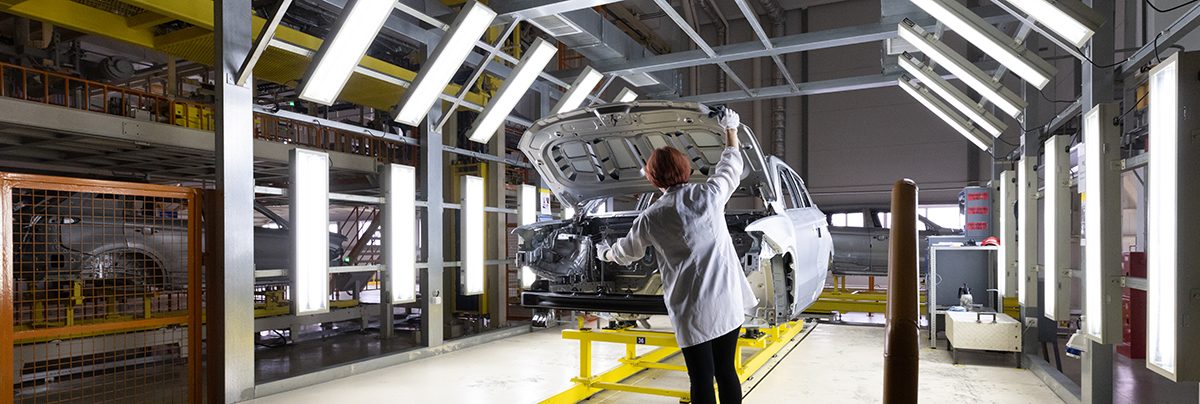The automobile industry, a driving force of the global economy, is an arena of exciting innovations and relentless competition. However, it is also fraught with complex challenges. As we navigate the road ahead, let’s take a closer look at the top 30 risks the sector faces.
- Market Volatility: This sector encounters dramatic highs and lows due to unpredictable fluctuations in demand and supply chains, driven by economic and socio-political factors.
- Supply Chain Disruption: Whether it’s geopolitical tensions, natural disasters, or pandemics, disruptions in the supply chain can bring production to a halt and severely impact profitability.
- Regulatory Changes: Ever-evolving regulations, especially those pertaining to emission standards and safety, often require costly overhauls and compliance measures.
- Economic Downturns: Economic slumps can dramatically reduce consumers’ purchasing power and their demand for new vehicles.
- Technological Disruption: The rise of new technologies like electric vehicles (EVs), autonomous vehicles, and AI pose considerable threats to traditional business models.
- Cybersecurity Threats: With vehicles becoming more interconnected and digital, the risk of cyberattacks looms larger than ever.
- Competition: With the advent of new players and the growth of overseas markets, competition in this sector is heating up.
- Trade Policies: Changes in tariffs and trade regulations can significantly impact the cost of imports and exports.
- Raw Material Price Fluctuation: Any shift in the prices of steel, aluminum, or precious metals can directly affect the production cost and overall profitability.
- Labor Relations: Labor disputes or strikes can disrupt production, impacting both the bottom line and the brand reputation.
- Product Recall: Significant recalls due to defects or malfunctions can be costly and damaging to the brand’s image.
- Fluctuating Fuel Prices: Fuel prices heavily influence consumer preference for specific types of vehicles.
- Shifts in Consumer Preference: Rapid changes in consumer preferences can leave automakers struggling to adapt and keep up.
- Environmental Risks: Natural disasters or climate change can significantly impact production facilities and disrupt operations.
- Intellectual Property Risks: Infringement of patents, trademarks, or other intellectual property can lead to costly legal battles.
- Infrastructure Breakdown: Disruptions in infrastructure can hinder production, transportation, and sales operations.
- Quality Control: Quality control failures can lead to recalls and serious damage to brand reputation.
- Inadequate R&D Investment: Falling behind in research and development can make manufacturers less competitive in a rapidly evolving industry.
- Brand Reputation: Negative publicity or scandals can have lasting damage on a brand’s image.
- Interest Rate Fluctuations: Changes in interest rates impact auto loan rates, thus influencing sales.
- Foreign Exchange Risk: Exchange rate volatility can affect profitability, especially for companies with international operations.
- Legal Risks: Lawsuits from customers, employees, or other stakeholders can lead to significant financial and reputational damage.
- Political Instability: Political turbulence in key markets can impact sales and production.
- Demographic Shifts: Changes in population age or income levels can shift demand for certain vehicle types.
- Inefficient Cost Management: The inability to control costs can have a direct impact on a company’s bottom line.
- Health and Safety Issues: Workplace accidents or health and safety violations can lead to financial penalties and tarnish a company’s reputation.
- Sustainability Challenges: Increasing pressure from consumers and governments to adopt sustainable practices is a significant challenge.
- Operational Risk: Any disruption in day-to-day operations, whether in production, sales, or service, can have a profound impact on business performance.
- Strategic Risk: Failure to adapt to changing industry dynamics such as EVs, ride-sharing, or autonomous vehicles can be disastrous.
- Data Management: As cars become more connected, handling and protecting a vast amount of data poses a significant challenge.
Despite these risks, the automobile industry is poised for a future filled with opportunity and innovation. With the right approach, these challenges can be transformed into stepping stones towards a more sustainable and efficient automotive future. As the industry continues to adapt and innovate, the key to success lies in understanding and proactively addressing these risks. Buckle up, the road ahead is full of possibilities!













